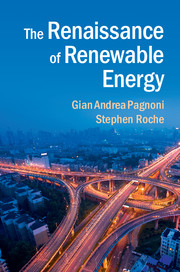6 - The Price of Energy Consumption
Published online by Cambridge University Press: 05 March 2015
Summary
Energy and the Environment
It was a town of machinery and tall chimneys, out of which interminable serpents of smoke trailed themselves for ever and ever, and never got uncoiled. It had a black canal in it, and a river that ran purple with ill-smelling dye, and vast piles of building full of windows where there was a rattling and a trembling all day long, and where the piston of the steam-engine worked monotonously up and down, like the head of an elephant in a state of melancholy madness.
(Dickens 1995)Charles Dickens called the setting of Hard Times Coketown. Like many English towns and cities in the nineteenth century, it was defined by the dirty process of producing coke, a coal by-product used to make steel. England was the cradle of the Industrial Revolution, and by Dickens’s time it was clear that this was a very messy baby. To appreciate the environmental impact of the world’s first wave of industrialisation, we need to look outside Europe and North America, to countries like China, India, Brazil, and Indonesia that are riding the latest wave. Manchester, Duisburg, Pittsburg and Turin are no longer foul-smelling and coal-blackened, to a large extent because Beijing, New Delhi, São Paulo and Lagos are. As in Dickens’s time, the environmental footprint of human societies is intimately linked to our consumption of energy.
Long before our energy-devouring societies began to pollute the planet’s air and water, agriculture put the stamp of humans firmly on the land. Intensive agriculture initially supported a growing rural population, but from the eighteenth century, farm mechanization pushed, and urban industry pulled, millions of people into cities. The mechanization of agriculture changed humankind’s relationship with the land. We went from a sense of dependence on its bounty to one of almost infinite control over its ‘products’. The progression from rural, decentralized, and low-energy societies to urban, centralized and high-energy ones has largely run its course in wealthy regions, but is still ongoing in most of the world.
- Type
- Chapter
- Information
- The Renaissance of Renewable Energy , pp. 189 - 231Publisher: Cambridge University PressPrint publication year: 2015



